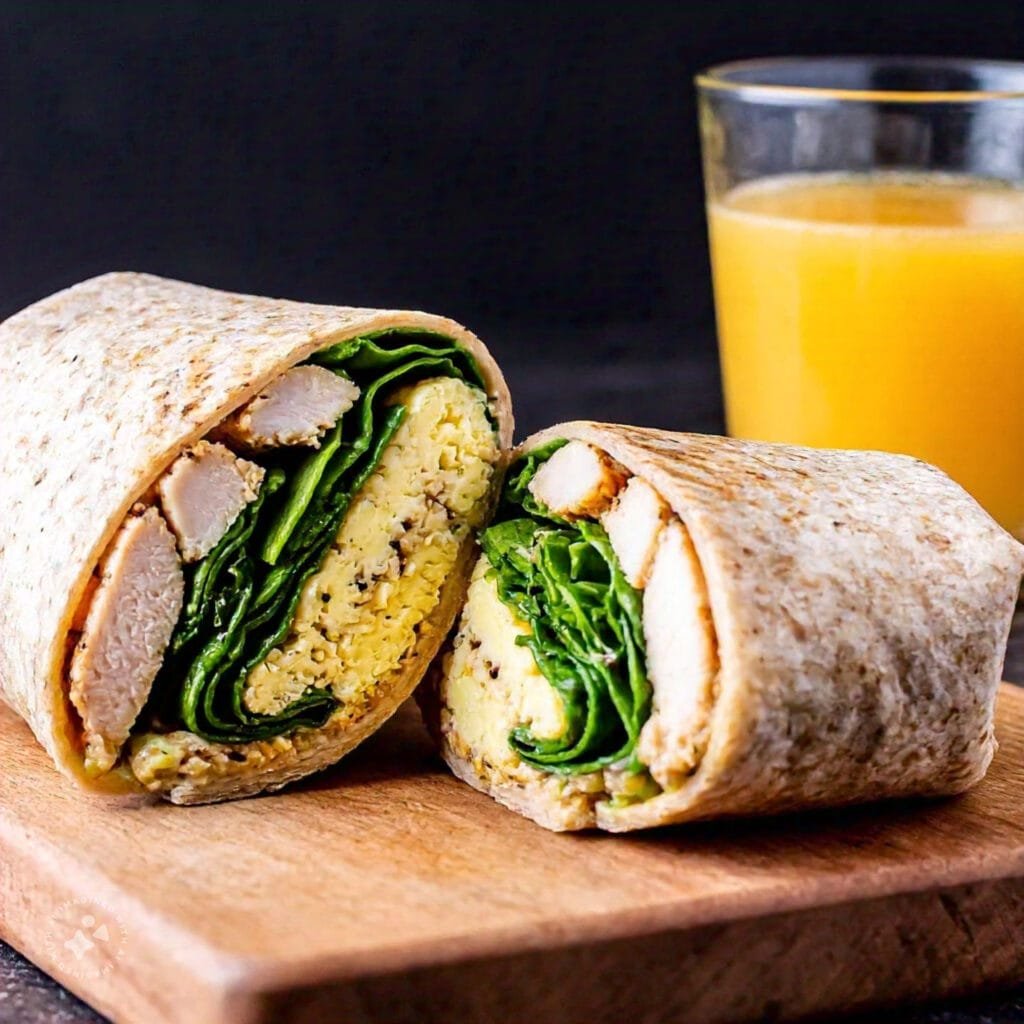Table of Contents
Introduction
Breakfast is often considered the most important meal of the day, fueling your body and brain for the hours ahead. Among the many breakfast options, eggs and chicken are standout choices due to their high protein content and versatility in dishes. But when it comes to deciding between the two, is it better to eat eggs or chicken for breakfast? This is a common question for those seeking a nutritious and satisfying start to their day. In this article, we compare the nutritional profiles, health benefits, and versatile recipes of both options to help you decide which one aligns with your dietary goals.
Nutritional Profile of Eggs
Eggs are among the most nutrient-dense foods on the planet, making them a popular breakfast choice. They pack a punch in terms of essential nutrients and offer a variety of health benefits.
Macronutrients in Eggs
A large egg contains approximately:
- Calories: 70–78
- Protein: 6 grams
- Fat: 5 grams (including healthy fats like monounsaturated and polyunsaturated fats)
- Carbohydrates: Less than 1 gram
The high protein content makes eggs an excellent choice for supporting muscle repair and providing sustained energy. Additionally, the fats in eggs contribute to satiety, helping you feel full longer.
Vitamins and Minerals in Eggs
Eggs are often referred to as nature’s multivitamin because of their rich nutrient profile. They are particularly high in:
- Vitamin A: Supports eye health and immune function.
- Vitamin B12: Essential for energy production and brain function.
- Vitamin D: Crucial for bone health and immune support.
- Choline: A vital nutrient for brain development and liver function.
- Selenium: Acts as an antioxidant, protecting cells from damage.
Unique Nutritional Components
- Antioxidants: Lutein and zeaxanthin in egg yolks protect the eyes from harmful light exposure and reduce the risk of cataracts.
- Omega-3 Fatty Acids: Found in eggs from certain breeds of chickens or fortified varieties, these fats benefit heart health and brain function.
Why Eggs Are Ideal for Breakfast
Eggs are quick to cook and incredibly versatile. They pair well with a variety of ingredients, allowing you to create everything from simple scrambled eggs to gourmet omelets. Additionally, their high protein content makes them a great choice for weight management, as they help curb mid-morning hunger pangs.
Nutritional Profile of Chicken
Chicken, often considered a dinner staple, has gained popularity as a breakfast food, especially among those following high-protein diets. Its nutrient profile makes it an excellent option for those seeking a hearty and satisfying start to their day.
Macronutrients in Chicken
A 100-gram (3.5-ounce) serving of cooked chicken breast provides:
- Calories: 165
- Protein: 31 grams
- Fat: 3.6 grams
- Carbohydrates: 0 grams
Chicken’s high protein content is its standout feature, providing a larger dose than eggs. It is especially beneficial for individuals engaging in strength training or seeking a protein-rich breakfast to fuel their day.
Vitamins and Minerals in Chicken
Chicken is a good source of essential nutrients, including:
- Vitamin B6: Important for metabolism and energy production.
- Niacin (Vitamin B3): Helps maintain healthy skin, digestion, and nerve function.
- Phosphorus: Supports bone health and energy storage.
- Zinc: Plays a role in immune function and cell repair.
Lean Protein and Weight Management
As a lean source of protein, chicken is low in calories but high in satiety. Eating chicken for breakfast can help regulate appetite and reduce overall calorie intake throughout the day, making it an excellent option for those aiming to lose or maintain weight.
Why Chicken Is an Emerging Breakfast Trend
Chicken is becoming a popular breakfast option because it provides sustained energy and pairs well with other healthy ingredients, such as whole grains and vegetables. Its mild flavor allows it to be incorporated into a range of breakfast recipes, from grilled chicken wraps to protein-packed salads.
Health Benefits of Eating Eggs
Eggs have been a dietary staple for centuries, and their reputation as a superfood is well-deserved. Incorporating eggs into your breakfast provides numerous health benefits that extend beyond their nutritional value.
Eggs Support Brain Health
Eggs are one of the best dietary sources of choline, a nutrient essential for brain function and development. Choline supports the production of neurotransmitters, which are critical for memory and mood regulation. For individuals of all ages, starting the day with eggs can enhance mental clarity and focus.
Boosting Eye Health
Egg yolks contain the antioxidants lutein and zeaxanthin, which are beneficial for eye health. These compounds protect the eyes from blue light and reduce the risk of age-related macular degeneration and cataracts. Adding eggs to your breakfast routine ensures a good intake of these essential antioxidants.
Muscle Building and Repair
The protein in eggs is classified as “high-quality” because it contains all nine essential amino acids. These amino acids are the building blocks for muscle tissue. Consuming eggs in the morning can support muscle repair after workouts, making them a favorite among athletes and fitness enthusiasts.
Weight Management and Satiety
Eggs are a powerful tool for weight management due to their ability to keep you full. Studies have shown that people who eat eggs for breakfast are less likely to snack excessively later in the day. The combination of protein and healthy fats in eggs slows digestion, reducing hunger pangs.
Heart Health and Cholesterol Balance
Although eggs were once criticized for their cholesterol content, research has shown that dietary cholesterol from eggs has minimal impact on blood cholesterol levels for most people. In fact, eggs can improve the balance of “good” HDL cholesterol, which supports heart health.
Quick and Convenient Breakfast Option
Beyond the health benefits, eggs are incredibly easy to prepare. Whether you prefer them boiled, scrambled, or fried, eggs can be cooked in minutes, making them an excellent choice for busy mornings.
Health Benefits of Eating Chicken
Chicken is often hailed as a lean protein powerhouse, and its inclusion in a breakfast menu offers distinct advantages. Here’s how chicken can benefit your health when eaten in the morning.

High Protein for Sustained Energy
With an impressive 31 grams of protein per 100 grams of cooked chicken breast, chicken provides the energy you need to power through your day. Its protein content helps stabilize blood sugar levels, preventing energy crashes that can occur after carbohydrate-heavy meals.
Muscle Recovery and Growth
The amino acid profile of chicken makes it ideal for muscle recovery and growth. For individuals engaging in morning workouts, a chicken breakfast can replenish muscles and support repair processes, helping to build strength and endurance over time.
Supports Weight Management
Chicken is low in calories but high in satiety. Eating chicken in the morning can curb your appetite and reduce overall calorie consumption throughout the day. Pairing chicken with fiber-rich vegetables or whole grains can further enhance this effect.
Low Fat, High Nutrient Density
Chicken breast is particularly low in fat, with only 3.6 grams of fat per serving. This makes it a heart-healthy option that provides essential nutrients like vitamin B6, phosphorus, and niacin without adding excess calories or unhealthy fats.
Versatility in Recipes
Chicken can be adapted to various cuisines and dietary preferences. From grilled chicken salads to chicken and egg wraps, its versatility allows you to create flavorful, nutrient-rich meals that suit your taste and nutritional goals.
Ideal for High-Protein Diets
For those following a ketogenic, paleo, or high-protein diet, chicken is an excellent breakfast choice. Its lack of carbohydrates and high protein content align perfectly with these dietary guidelines, making it a go-to option for many health-conscious individuals.
Eggs vs. Chicken: A Direct Comparison
When choosing between eggs and chicken for breakfast, several factors come into play, including nutritional content, ease of preparation, dietary needs, and personal preferences. Let’s compare these two protein powerhouses in detail.
Nutritional Comparison
While both eggs and chicken are excellent sources of protein, their nutrient profiles vary.
| Nutrient | Eggs (per large egg) | Chicken Breast (per 100g) |
|---|---|---|
| Calories | 70–78 | 165 |
| Protein | 6 grams | 31 grams |
| Fat | 5 grams | 3.6 grams |
| Cholesterol | 186 mg | 85 mg |
| Vitamins | Rich in B12, D, A | High in B6, Niacin |
| Minerals | Selenium, Choline | Phosphorus, Zinc |
- Eggs offer a wider range of vitamins and minerals, including eye-friendly lutein and zeaxanthin.
- Chicken has a higher protein content, making it ideal for muscle recovery and sustained energy.
Preparation Time and Versatility
- Eggs: Quick to cook, requiring as little as five minutes to scramble or boil. Their versatility allows them to be used in numerous recipes, from omelets to egg muffins.
- Chicken: Typically takes longer to prepare, especially if it requires cooking from raw. However, pre-cooked or leftover chicken can be added to salads, wraps, or sandwiches for a quick meal.
Dietary Preferences and Restrictions
- Eggs: A go-to option for vegetarians who consume animal products but avoid meat. They are suitable for keto and low-carb diets.
- Chicken: A preferred choice for meat lovers and those seeking high-protein, low-fat meals. It is also highly compatible with paleo, ketogenic, and high-protein diets.
Cost and Availability
- Eggs are generally more affordable and widely available.
- Chicken can be more expensive per serving but offers a higher yield in terms of protein.
Sustainability and Ethical Considerations
- Eggs: The sustainability of eggs depends on sourcing. Free-range or pasture-raised options are more ethical but can be pricier.
- Chicken: Concerns over factory farming practices have prompted many to seek free-range or organic options, which can influence cost and availability.
Who Wins?
The “better” option depends on individual goals and preferences:
- Choose Eggs: If you need a quick, nutrient-dense breakfast or are managing cholesterol levels carefully.
- Choose Chicken: If your goal is high protein intake for muscle recovery or satiety.
Popular Breakfast Recipes with Eggs
Eggs are a breakfast favorite because they can be prepared in countless ways to suit various tastes and dietary preferences. Here are some popular recipes to inspire your morning meal.

Scrambled Eggs
- Ingredients: Eggs, milk (optional), salt, pepper, butter or oil.
- Preparation: Beat the eggs in a bowl, adding a splash of milk for fluffiness. Heat a non-stick pan with butter or oil, pour in the eggs, and stir gently until cooked to your preferred consistency.
- Why It’s Great: Quick, simple, and adaptable with additions like cheese, vegetables, or herbs.
Classic Omelet
- Ingredients: Eggs, fillings (cheese, ham, vegetables), salt, pepper, butter or oil.
- Preparation: Beat the eggs, season, and pour into a hot pan. Allow the eggs to set slightly before adding your fillings. Fold the omelet in half and cook until done.
- Why It’s Great: Highly customizable and perfect for a hearty breakfast.
Boiled Eggs
- Ingredients: Eggs, water, salt (optional).
- Preparation: Place eggs in a pot, cover with water, and boil. Adjust cooking time for soft (6 minutes), medium (8 minutes), or hard-boiled (10–12 minutes).
- Why It’s Great: Portable, easy to prepare, and versatile for pairing with other breakfast items like toast or salad.
Egg Muffins
- Ingredients: Eggs, diced vegetables, cheese, cooked meats, salt, pepper.
- Preparation: Whisk the eggs, season, and pour into a greased muffin tin. Add your choice of vegetables, cheese, or meat. Bake at 375°F (190°C) for 15–20 minutes.
- Why It’s Great: Meal prep-friendly and perfect for busy mornings.
Avocado and Egg Toast
- Ingredients: Eggs, bread, avocado, salt, pepper, chili flakes (optional).
- Preparation: Toast the bread, spread mashed avocado on top, and layer with a fried, poached, or boiled egg.
- Why It’s Great: Combines healthy fats and protein for a balanced, nutritious breakfast.
Shakshuka
- Ingredients: Eggs, tomatoes, onions, bell peppers, garlic, spices (paprika, cumin), olive oil.
- Preparation: Sauté vegetables and spices in olive oil, add canned or fresh tomatoes, and simmer. Make small wells in the sauce, crack in eggs, and cover until the eggs are cooked.
- Why It’s Great: A flavorful and nutrient-rich breakfast dish with Middle Eastern origins.
Popular Breakfast Recipes with Chicken
Chicken is gaining popularity as a breakfast ingredient due to its versatility and protein content. These recipes showcase creative ways to include chicken in your morning routine.
Grilled Chicken and Egg Breakfast Wrap
- Ingredients: Grilled chicken slices, scrambled eggs, spinach, whole-grain wrap, cheese (optional).
- Preparation: Layer the chicken, eggs, and spinach on a wrap. Add cheese if desired, fold, and heat on a skillet for a crispy finish.
- Why It’s Great: Portable and protein-packed, ideal for a busy morning.
Avocado chicken Toast
- Ingredients: Grilled or shredded chicken, avocado, whole-grain bread, salt, pepper, lemon juice.
- Preparation: Spread mashed avocado on toast, top with chicken, and season with salt, pepper, and a drizzle of lemon juice.
- Why It’s Great: Combines protein, healthy fats, and fiber for sustained energy.
Chicken Breakfast Bowl
- Ingredients: Grilled chicken, quinoa or rice, sautéed vegetables, eggs (optional), spices.
- Preparation: Layer a bowl with cooked quinoa, chicken, and vegetables. Top with a fried or poached egg for added richness.
- Why It’s Great: A filling and nutrient-dense breakfast option that is easy to customize.
Waffles and chicken
- Ingredients: Chicken (fried or grilled), waffles, butter, syrup.
- Preparation: Prepare waffles and pair them with crispy fried or grilled chicken. Drizzle with syrup or honey for a sweet-savory combo.
- Why It’s Great: A decadent yet protein-rich breakfast option with Southern roots.
Chicken Salad Toast
- Ingredients: Cooked chicken, Greek yogurt or mayonnaise, celery, onions, spices, whole-grain bread.
- Preparation: Mix chicken with yogurt, chopped vegetables, and spices. Spread over toast for a light yet satisfying breakfast.
- Why It’s Great: A fresh and protein-heavy option for those who prefer a lighter meal.
Chicken and Veggie Scramble
- Ingredients: Shredded chicken, eggs, diced vegetables, olive oil, salt, pepper.
- Preparation: Sauté vegetables in olive oil, add chicken, then pour in whisked eggs. Stir gently until cooked through.
- Why It’s Great: Combines the best of eggs and chicken for a high-protein, low-carb breakfast.
FAQs
Can I eat both eggs and chicken for breakfast?
Yes, combining eggs and chicken for breakfast can be an excellent choice, especially if you’re looking to boost your protein intake. A dish like a chicken and egg scramble or a breakfast wrap with both ingredients provides a balanced meal with sustained energy and satiety.
Are eggs healthier than chicken?
Eggs and chicken offer different nutritional benefits, so one is not inherently healthier than the other. Eggs are nutrient-dense with essential vitamins like B12 and D, while chicken provides higher protein content and is lower in fat. The choice depends on your dietary goals and preferences.
Which is better for weight loss, eggs or chicken?
Both eggs and chicken can support weight loss due to their high protein content and ability to keep you full. Eggs are lower in calories per serving, making them a great option for a lighter meal, while chicken provides more protein, ideal for those following high-protein diets.
Can I eat eggs and chicken every day for breakfast?
Yes, you can include eggs and chicken in your daily breakfast if you balance your overall diet with other nutrients like fiber and healthy fats. However, it’s important to ensure variety in your meals to meet your full nutritional needs and avoid overconsumption of any single food.
Are eggs or chicken better for muscle building?
Chicken is better for muscle building due to its higher protein content per serving. However, eggs also contribute significantly because they contain high-quality protein and essential amino acids. Many athletes and bodybuilders incorporate both into their diets.
Are there any risks to eating eggs or chicken for breakfast?
The risks are minimal if you choose high-quality, properly cooked products. For eggs, individuals with cholesterol sensitivity or egg allergies should be cautious. For chicken, ensure it’s fully cooked to avoid foodborne illnesses and choose lean cuts to limit fat intake.
Conclusion
When it comes to deciding between eggs and chicken for breakfast, the answer depends on your nutritional goals, dietary preferences, and lifestyle.
- Eggs are a versatile, nutrient-dense option that’s perfect for a quick, easy, and affordable meal. They’re ideal for brain health, weight management, and those on the go.
- Chicken, with its higher protein content and lean profile, is great for athletes, individuals on high-protein diets, and those seeking sustained energy throughout the morning.
Ultimately, both foods offer substantial health benefits, making them excellent choices for breakfast. You can even combine the two for a powerhouse meal that maximizes their unique advantages. Tailor your choice to fit your specific needs, and enjoy a nutritious start to your day!
You might also like:





